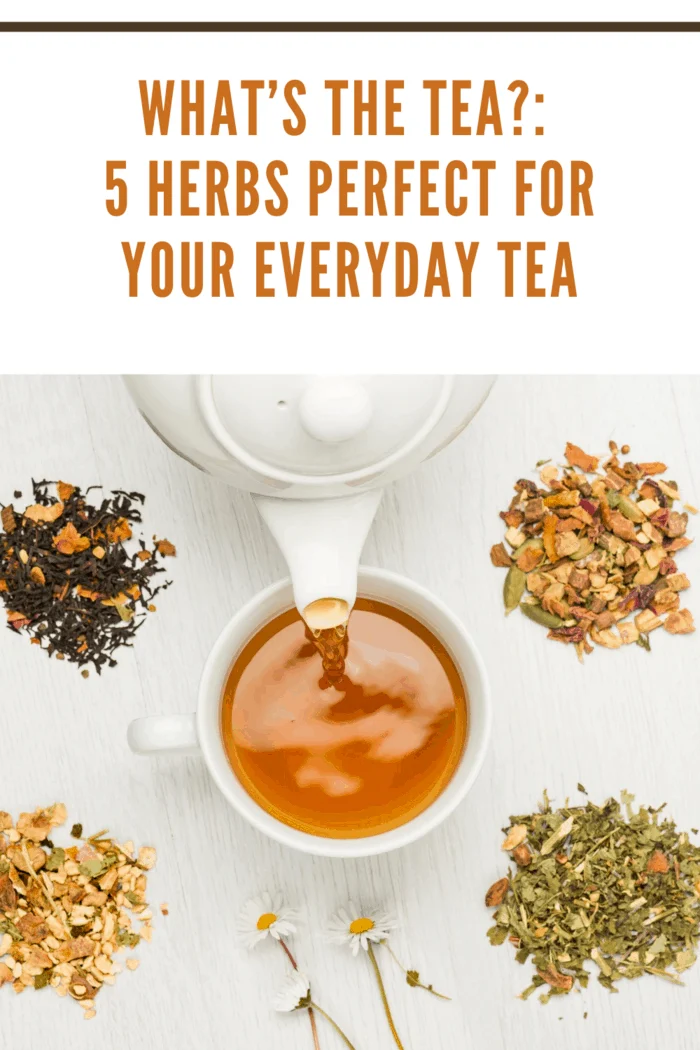5 Herbs Perfect for Your Everyday Tea: A Fresh Approach to Your Tea Ritual
It’s been six months since our world shifted, and with our limited trips outside, many of us have found solace in new activities. Gardening, especially growing herbs, has become a delightful escape for many, offering both beauty and practicality. Indoor plants not only enhance the aesthetics of our homes but can also be a source of fresh, flavorful ingredients for our daily rituals.
If you’re a tea enthusiast, you might find the idea of harvesting herbs from your own garden particularly appealing. Imagine brewing a cup of tea with herbs you’ve grown yourself. It’s not just a health-conscious choice but also a budget-friendly one. Here’s a roundup of five herbs that can transform your tea experience into a moment of pure indulgence.

Spearmint: A Refreshing Twist
When you think of spearmint, you might picture its refreshing flavor in gum or toothpaste, but it’s also an excellent addition to your tea. Whether fresh or dried, spearmint leaves bring a burst of flavor and aroma to your cup. Fresh spearmint, in particular, offers a more pronounced taste.
Gardener’s Path highlights the benefits of growing your own spearmint. This herb isn’t just refreshing—it’s also packed with antioxidants that aid in digestion. If stress from overindulgence is a concern, spearmint tea can be a soothing remedy. It’s an excellent choice for those sensitive to certain foods or seeking a calming, digestive aid.
Lemongrass: Zesty and Therapeutic
Lemongrass is a staple in many kitchens, known for its vibrant flavor and aroma. Beyond its culinary uses, lemongrass also shines as a medicinal herb. It possesses antimicrobial properties that help fend off bacteria and infections. The antioxidants in lemongrass tea can soothe stomach cramps and support overall health.
Its versatility extends to various dishes, and its therapeutic qualities make it a valuable addition to your herbal tea collection.
Basil: A Culinary and Medicinal Marvel
Basil is a beloved herb in both Asian and Italian cuisines, adding flavor to dishes like spaghetti and meatballs. But did you know basil also offers significant health benefits? Basil tea is known for its calming effects, which can be particularly beneficial for those dealing with arthritis or fibromyalgia.
Healthline notes that basil possesses adaptogenic properties along with anti-inflammatory and antioxidant benefits. Its pleasant aroma and taste make it a delightful choice for a relaxing tea.
Rosemary: A Flavorful Health Booster
Rosemary is renowned for its earthy, aromatic quality in cooking, but it also makes a wonderful tea. This herb can help regulate blood sugar levels, enhance digestion, and provide antioxidant protection against heart disease and cancer.
Rosemary tea’s unique flavor and health benefits make it a versatile choice for anyone looking to improve their well-being while enjoying a fragrant brew.
Wild Pansy: Beauty Meets Medicine
For those who appreciate plants for their beauty, wild pansy offers both visual appeal and medicinal benefits. This charming flowering plant can brighten up any space and serve as a therapeutic herb.
In modern herbalism, wild pansy is valued for its diuretic properties and its ability to alleviate hyperacidity. It’s remarkable how such a beautiful plant can offer medicinal advantages.
Takeaway: Cultivate Wellness with Indoor Herbs
Incorporating herbs like basil, wild pansy, and lemongrass into your indoor garden not only enriches your tea experience but also contributes to your overall health. These herbs are space-efficient and can thrive in pots near a sunny window or even be hung to save space.
Ready to start your herbal tea journey? Explore the wonderful world of indoor gardening and find the perfect pots and supplies for your new hobby. Check out this selection on Amazon to get started. Share your gardening and tea-making experiences in the comments below—I’d love to hear about your favorite herbs and how they’ve enhanced your tea ritual!
